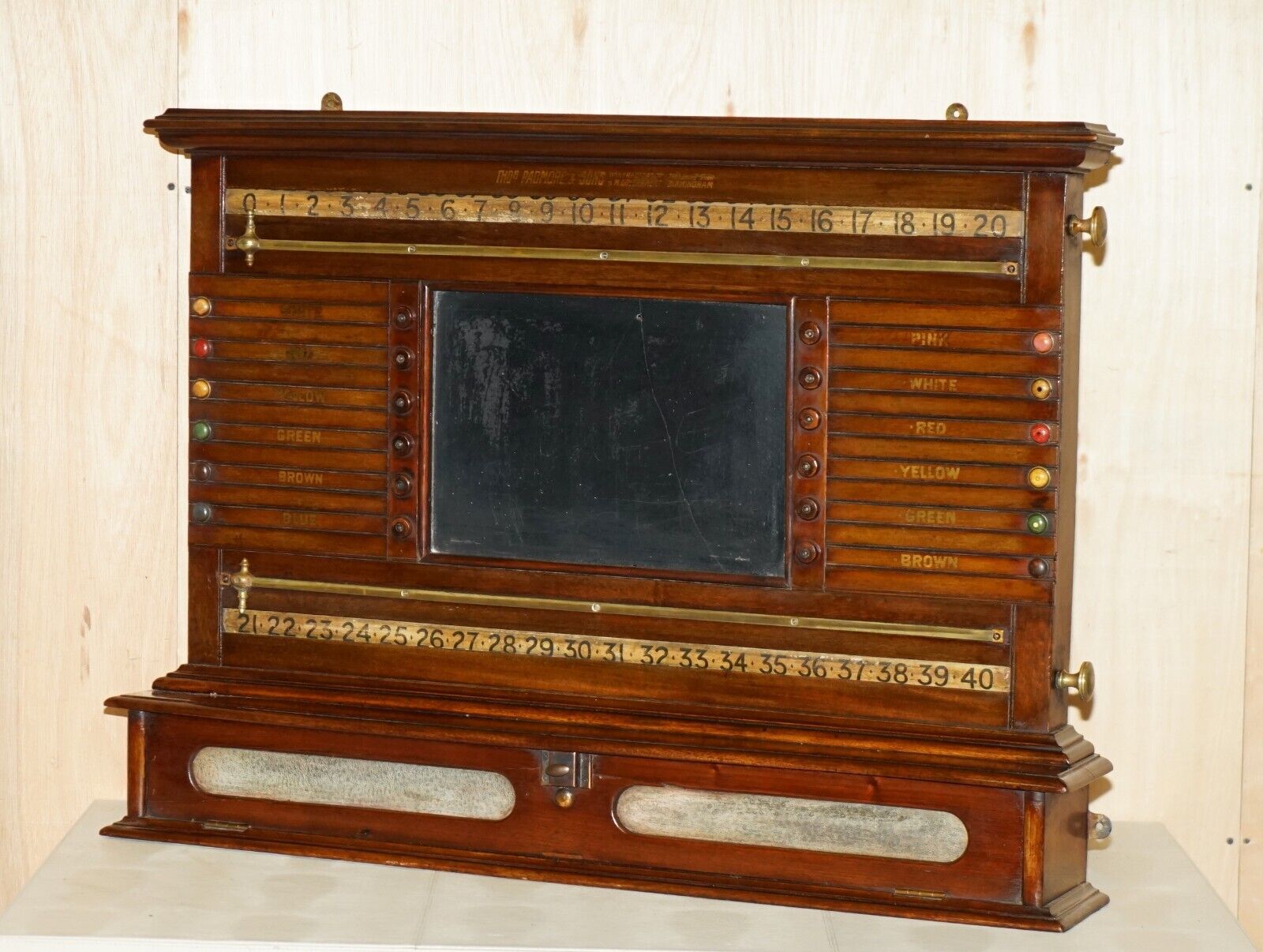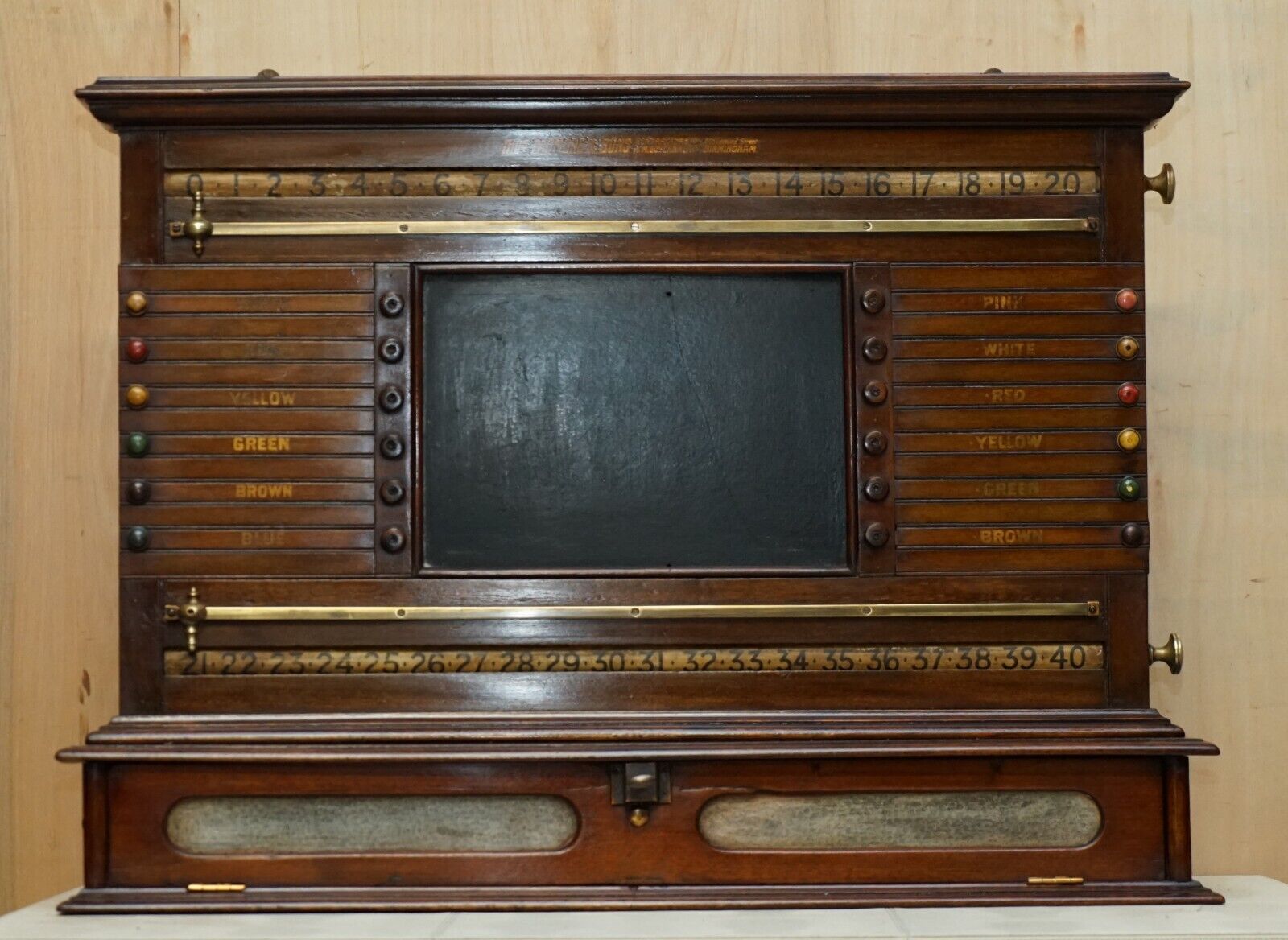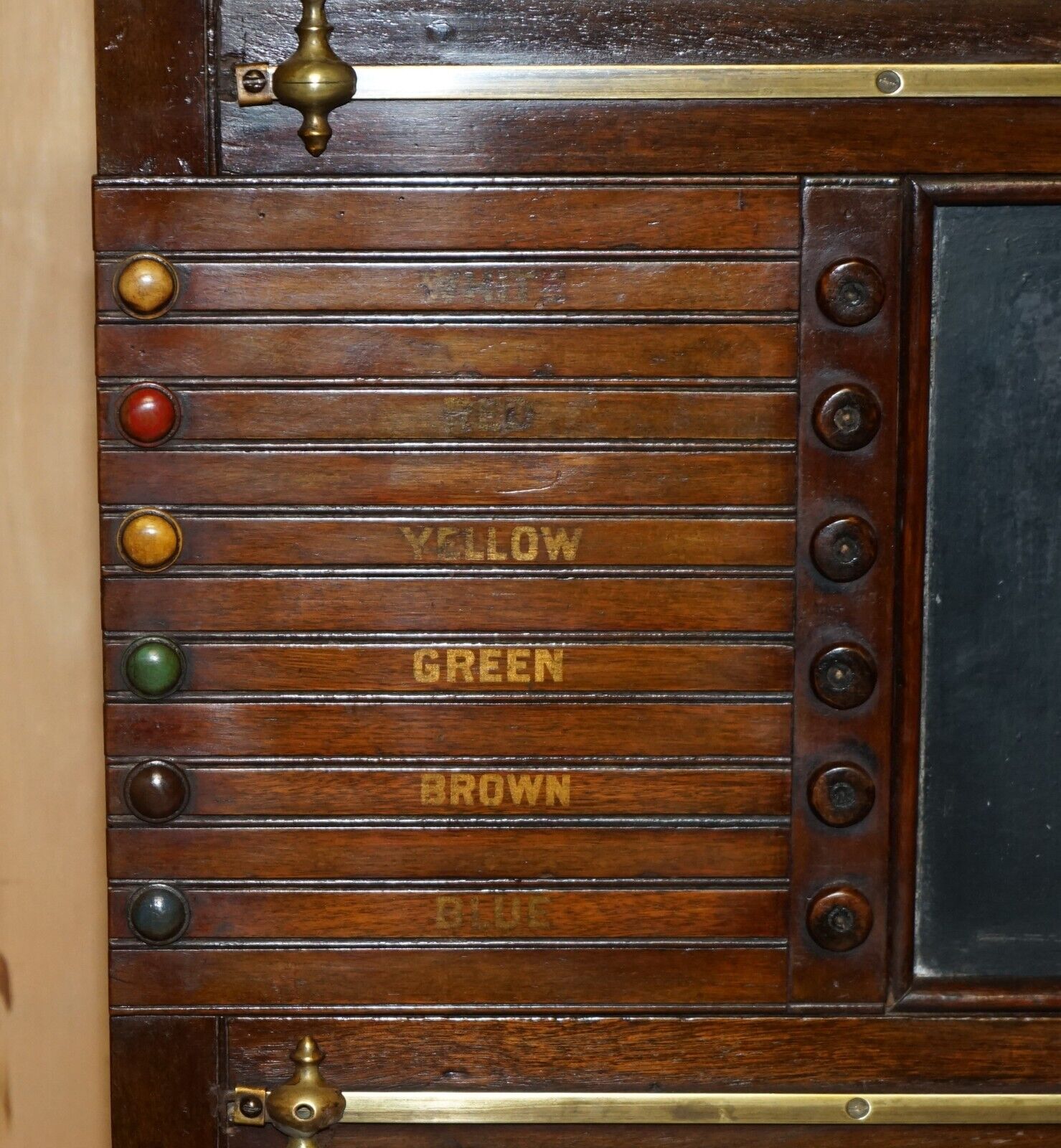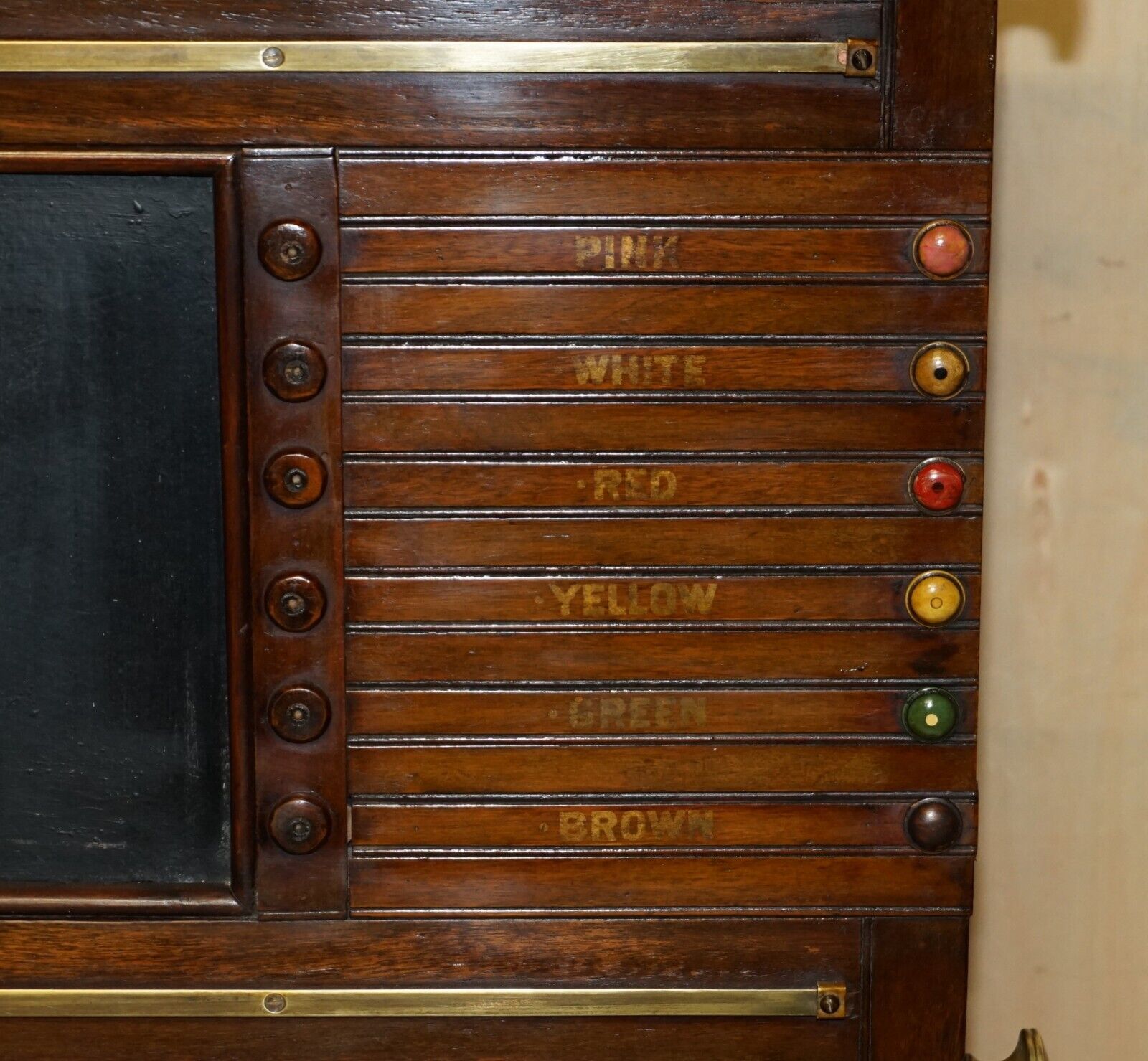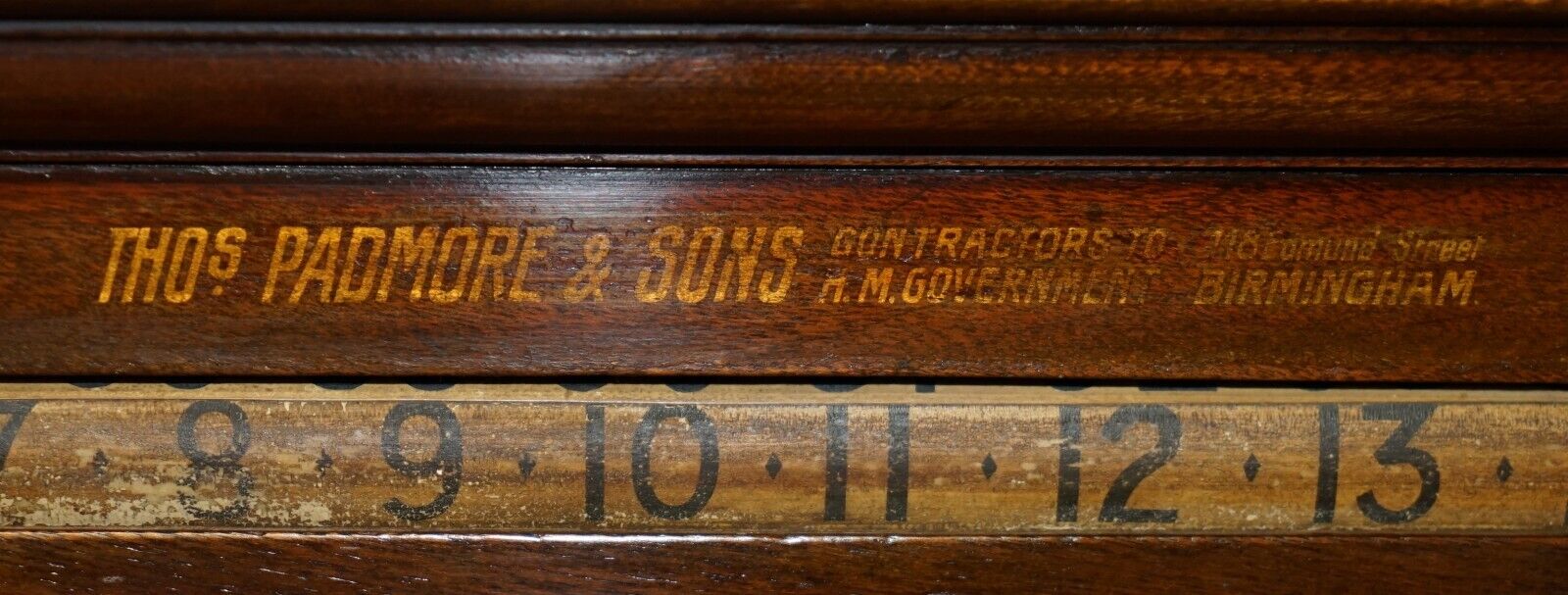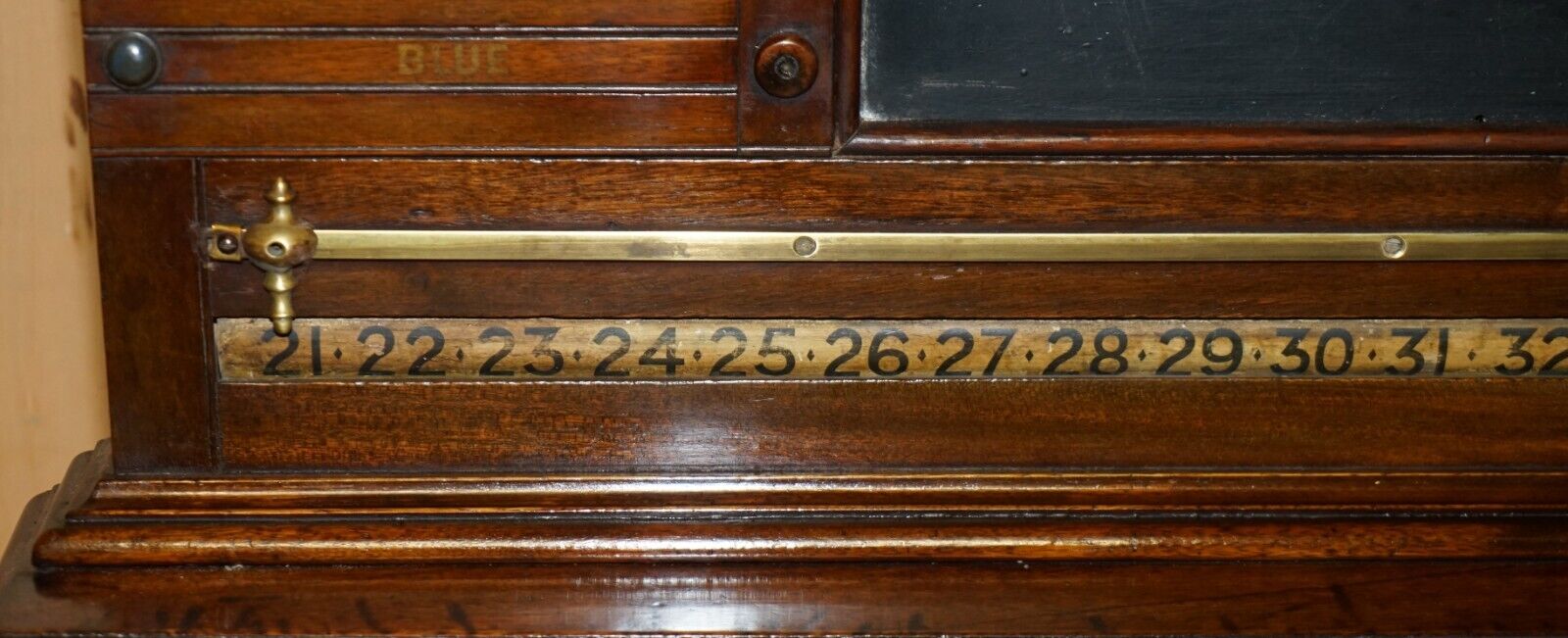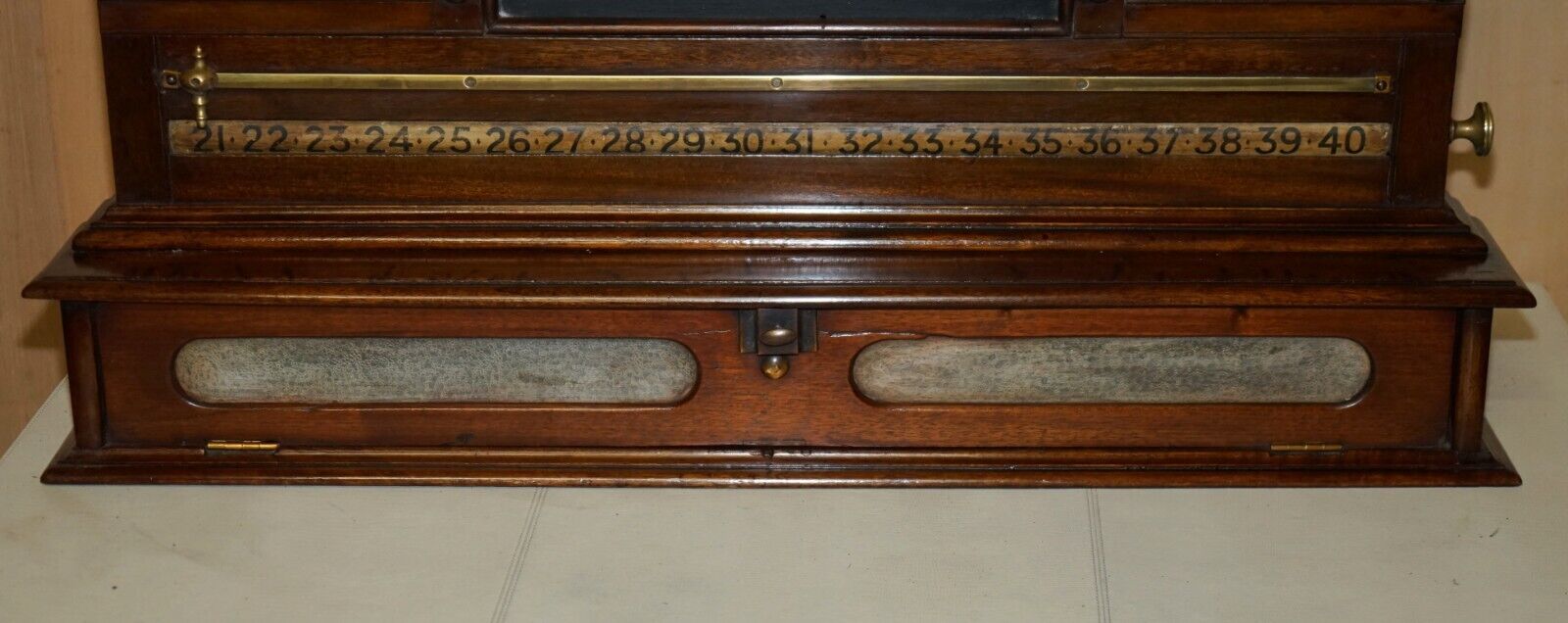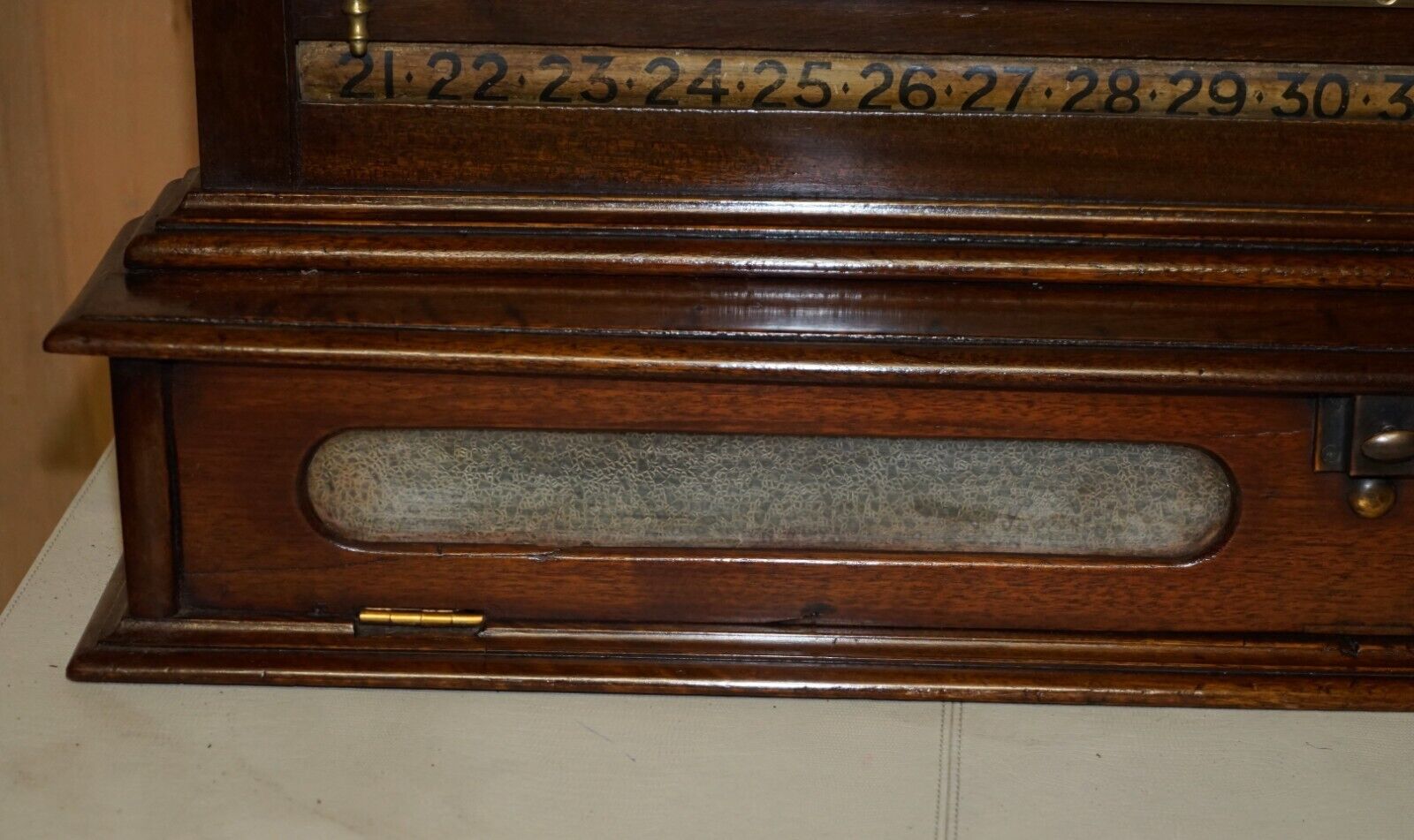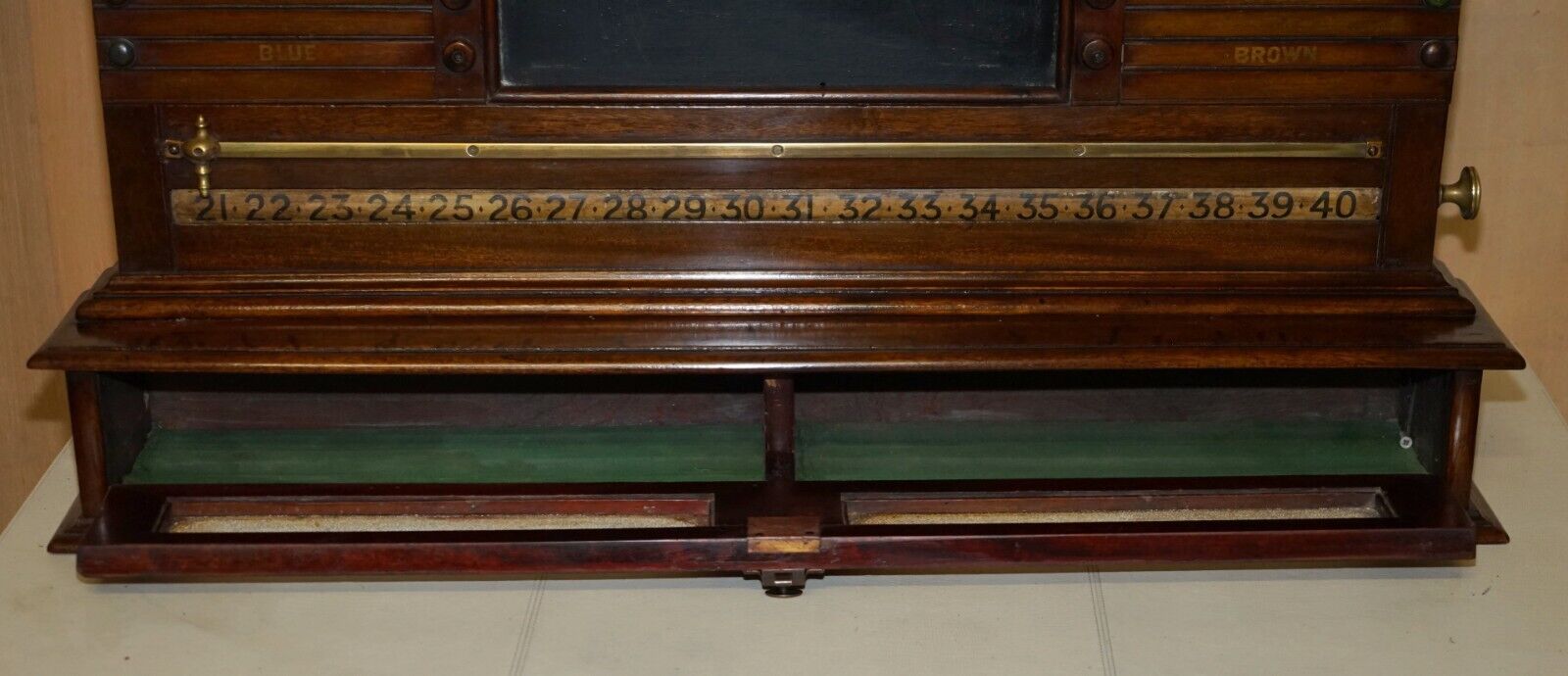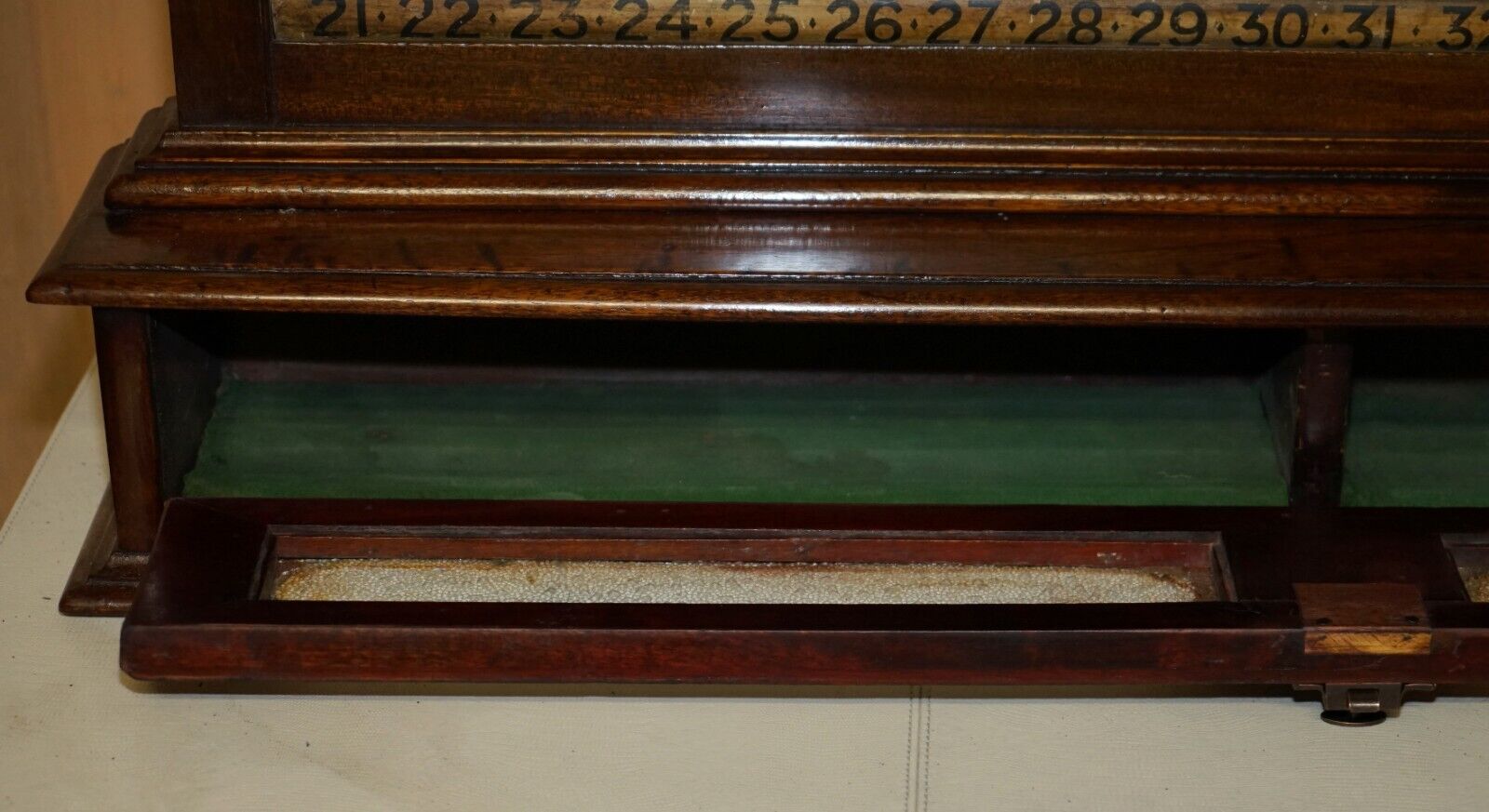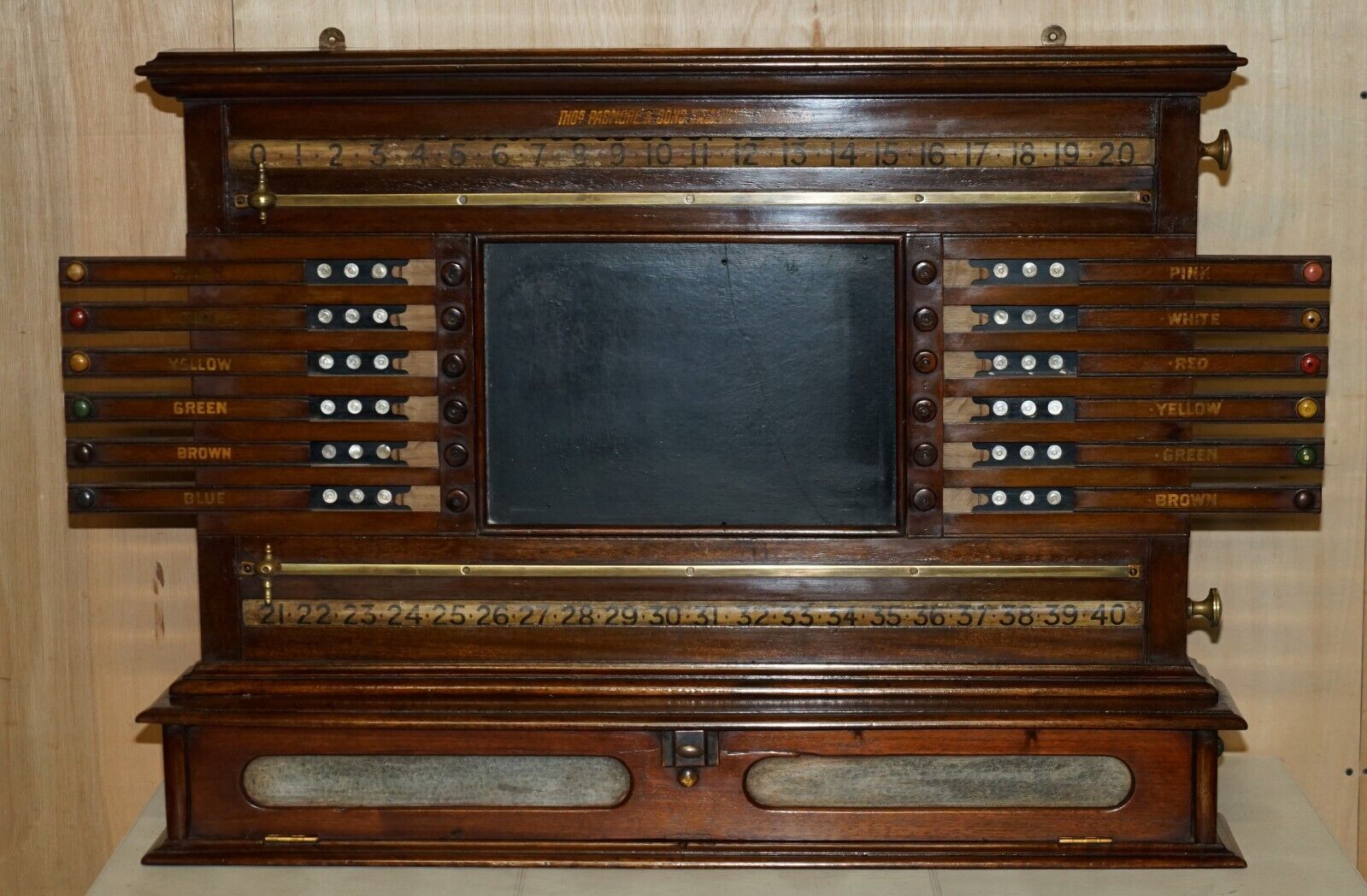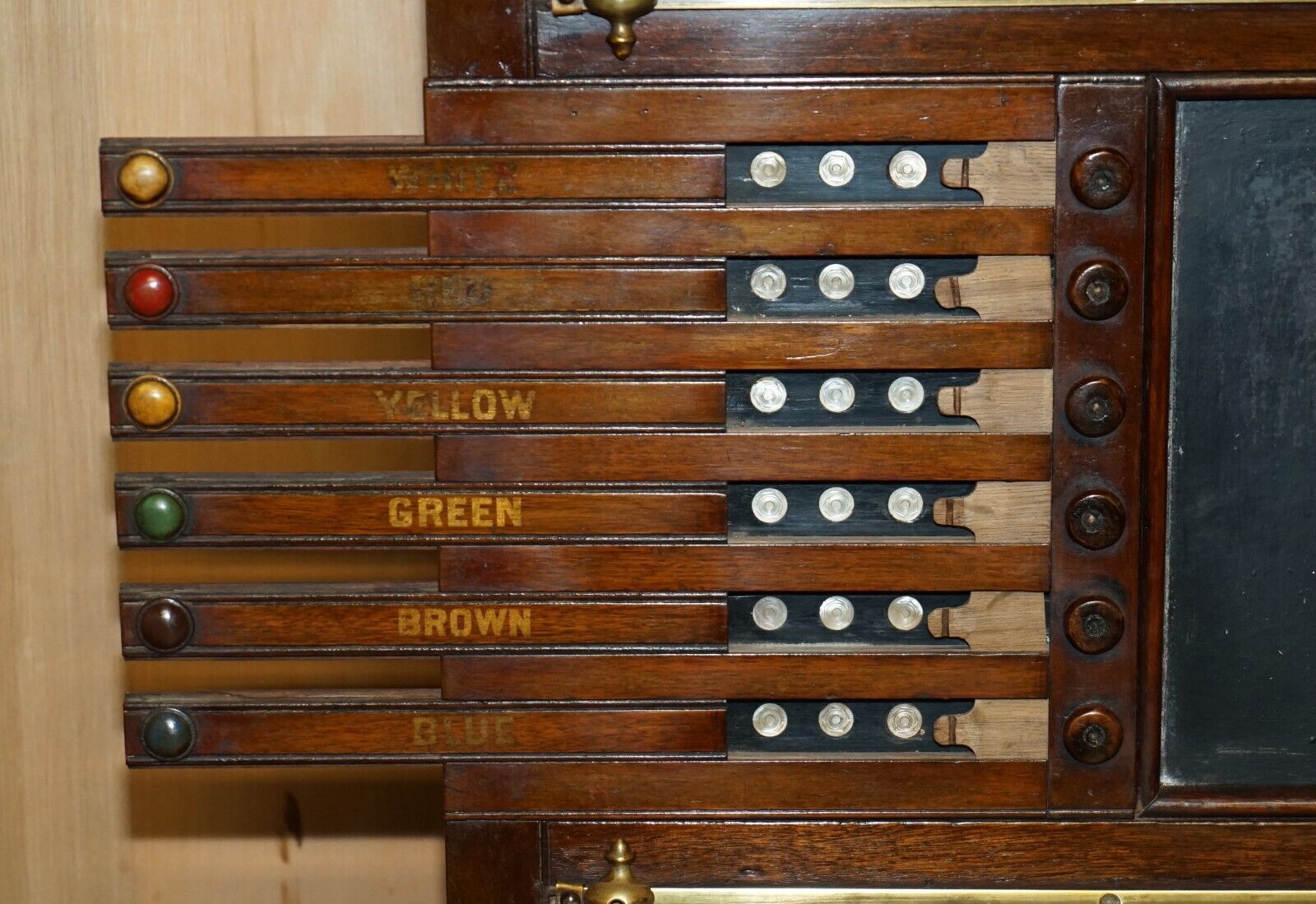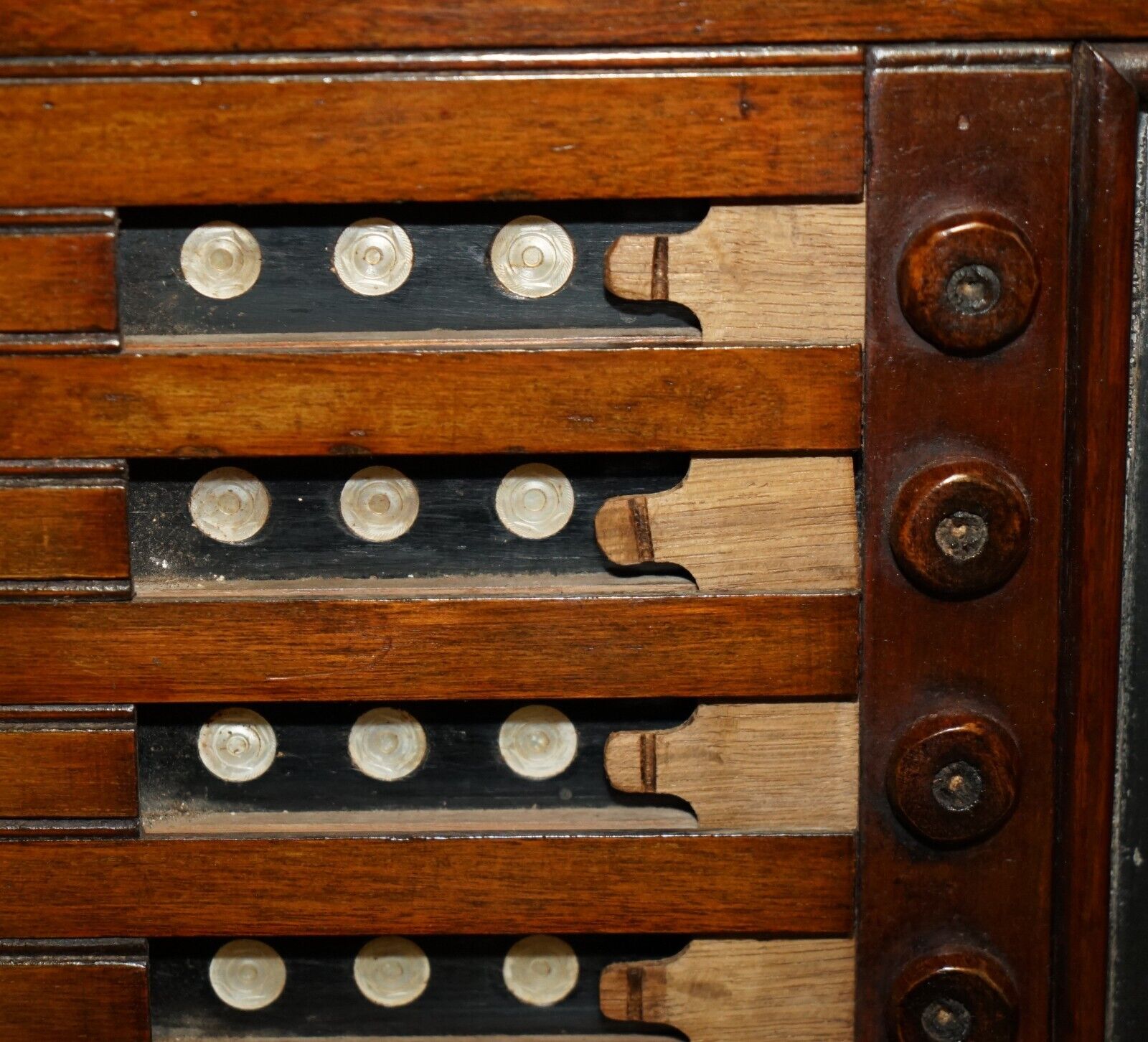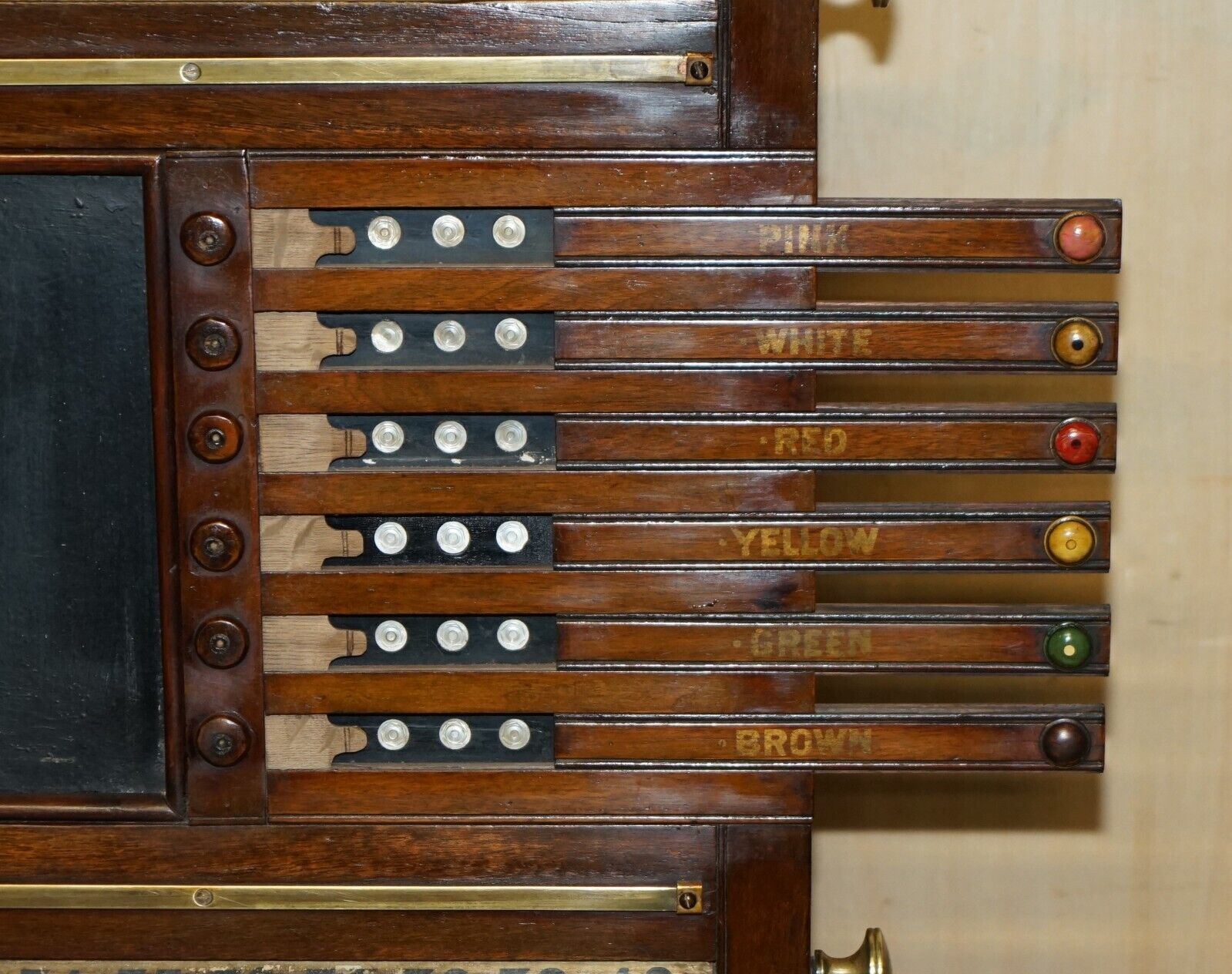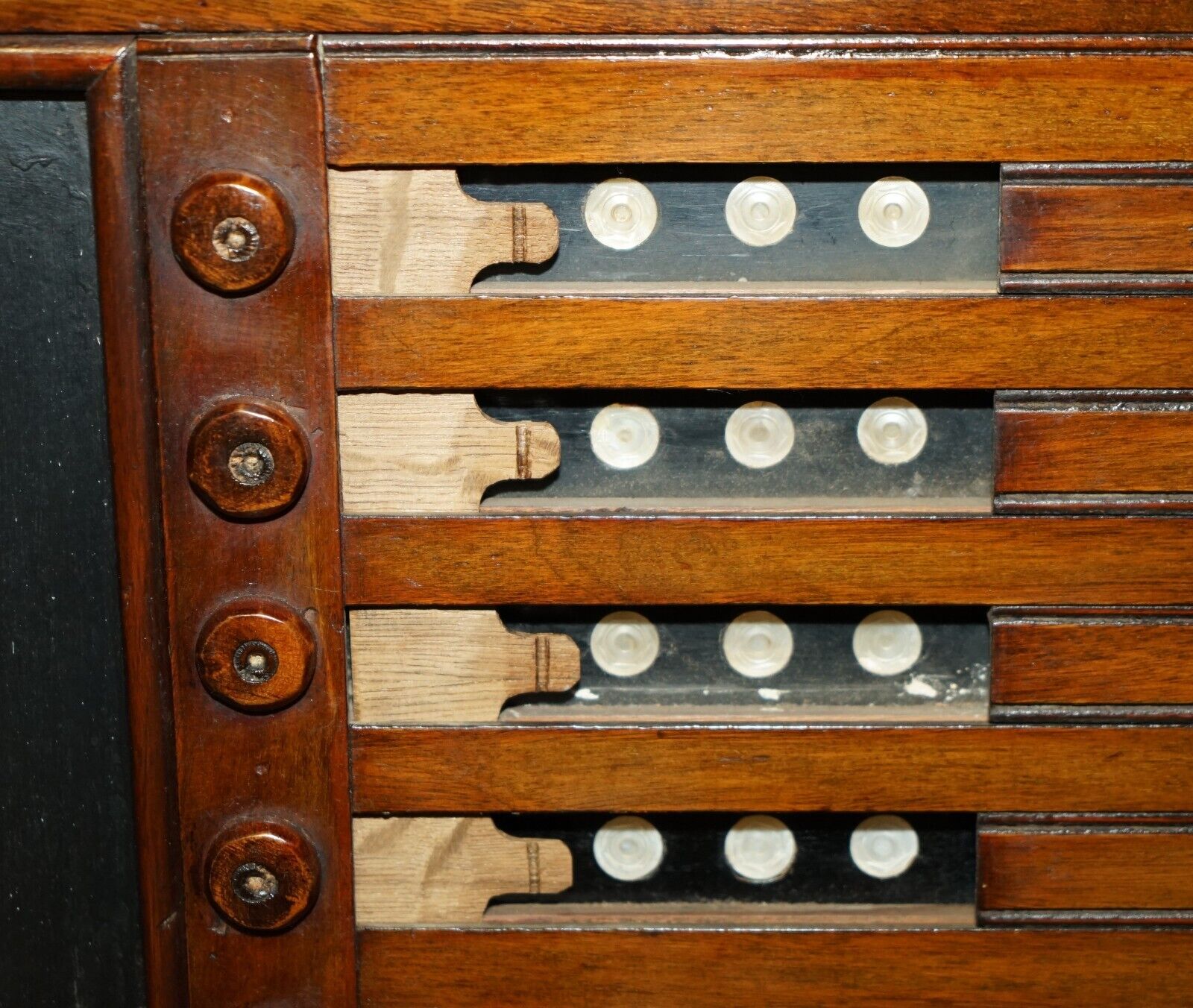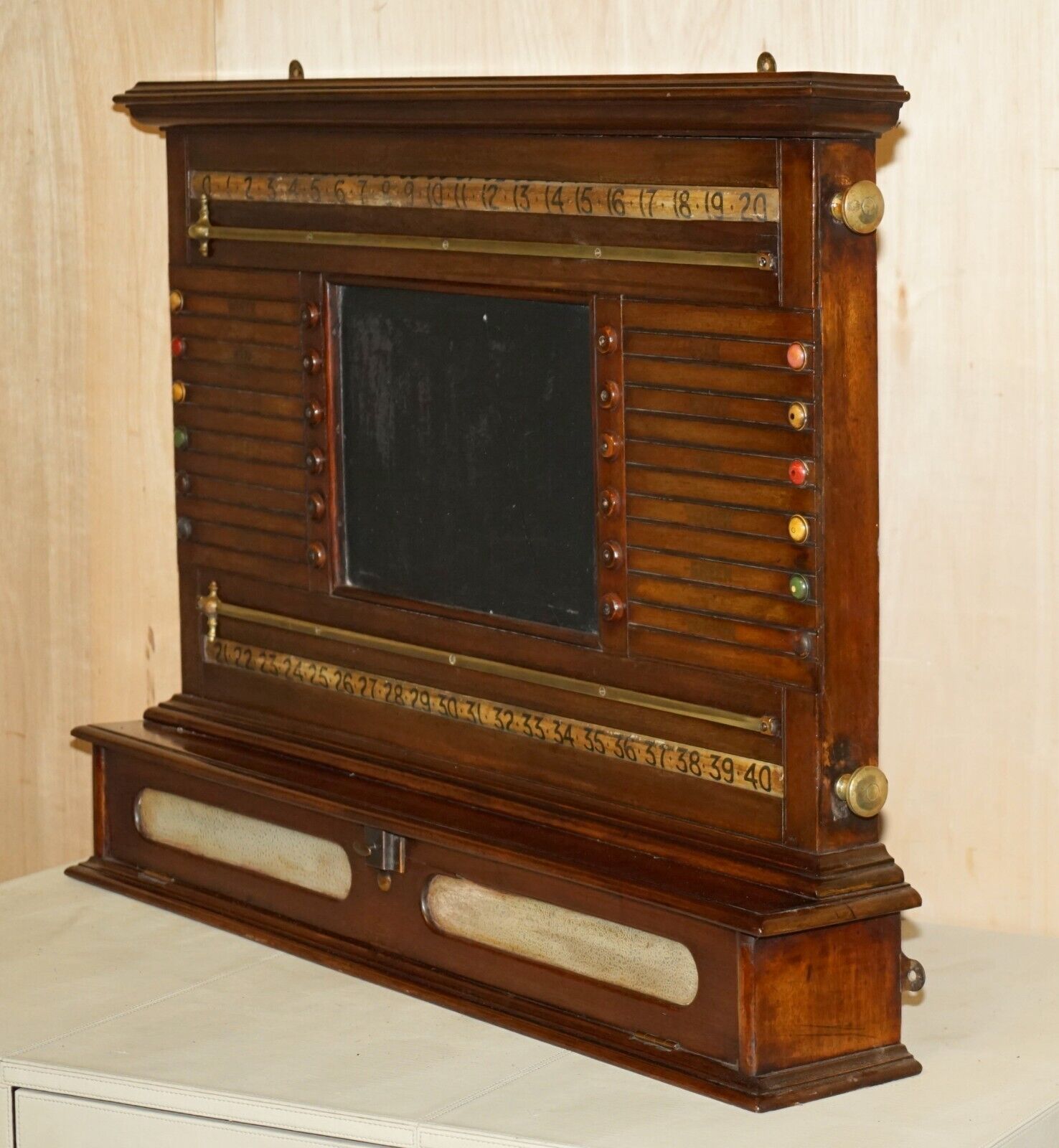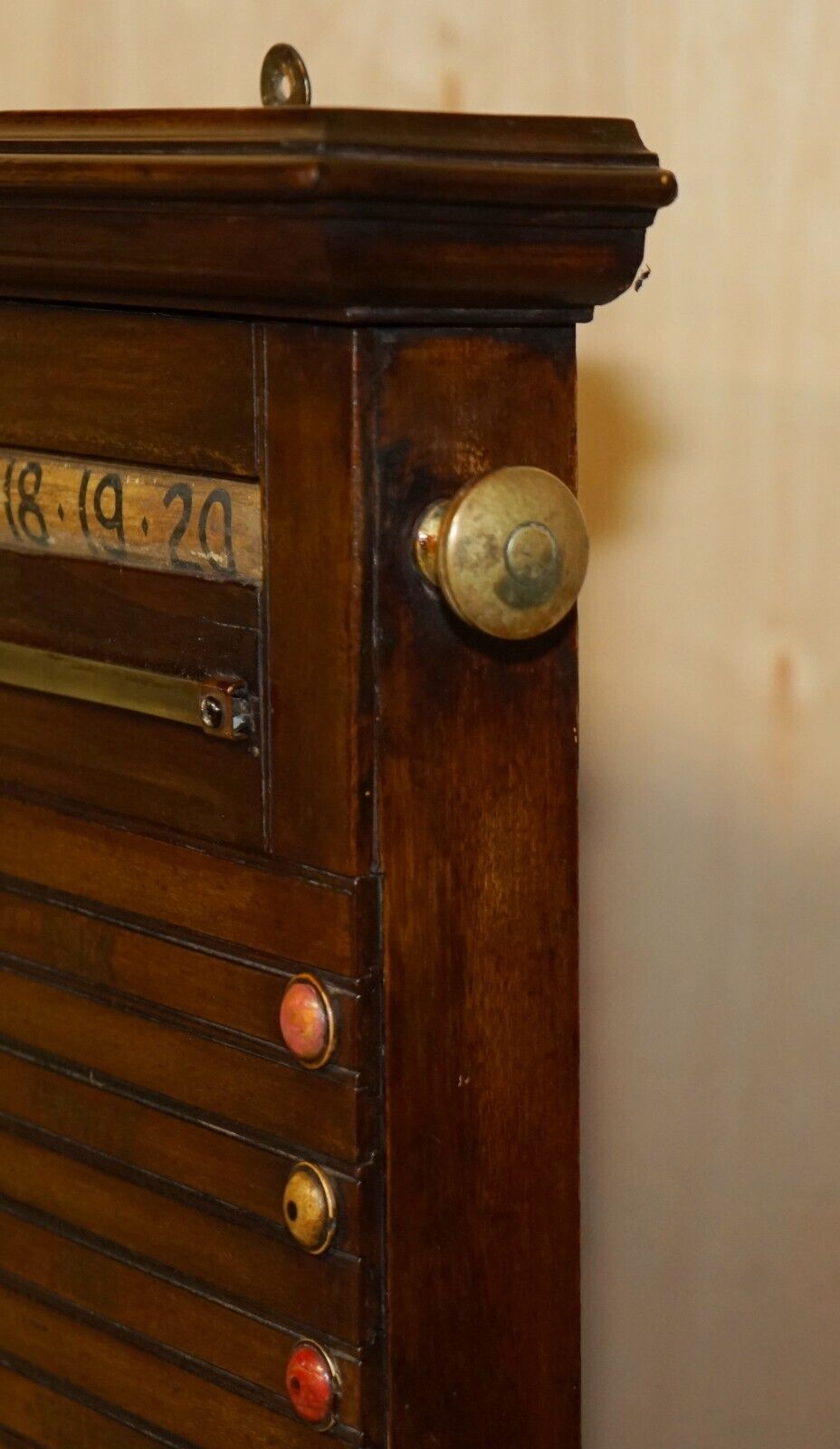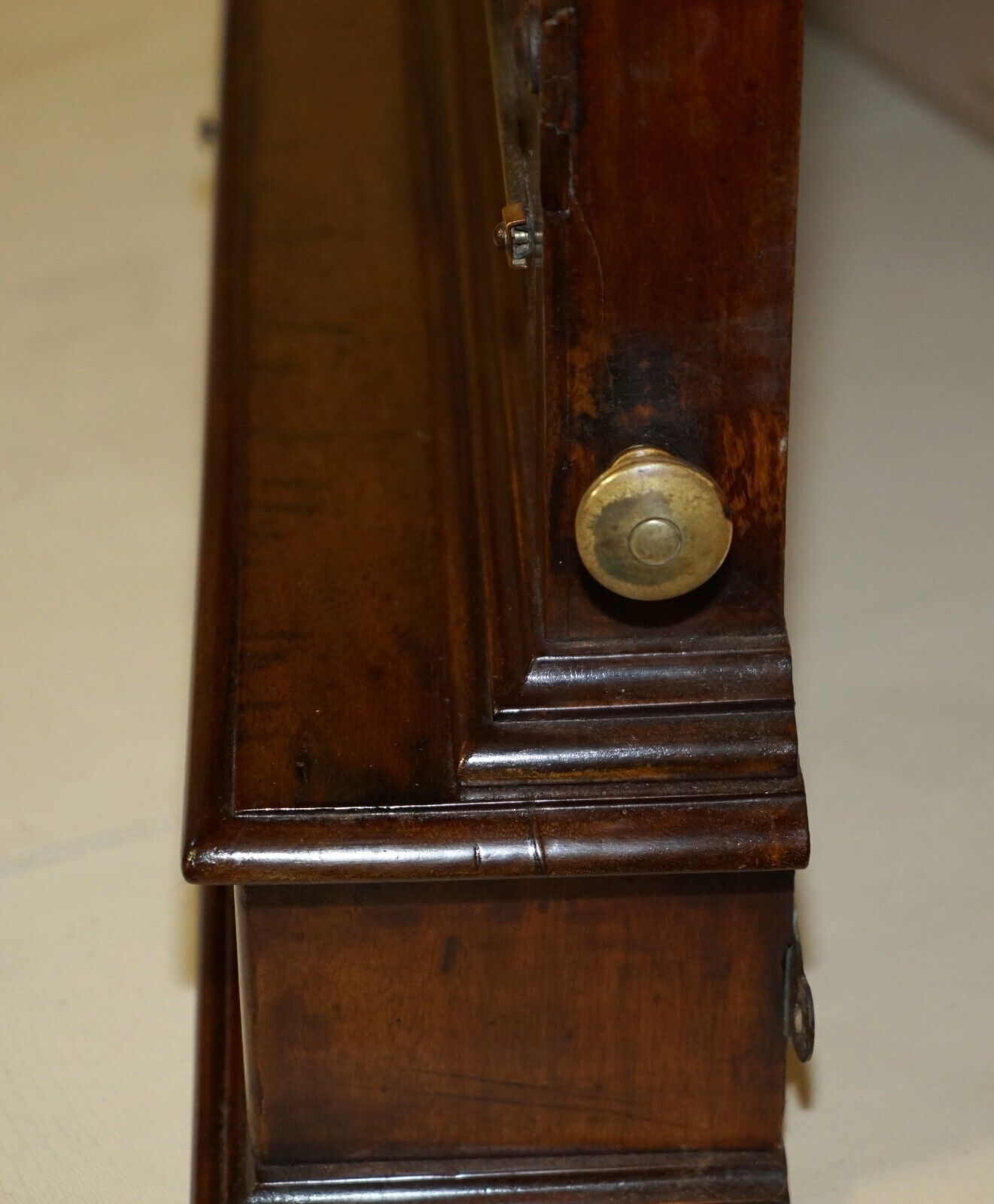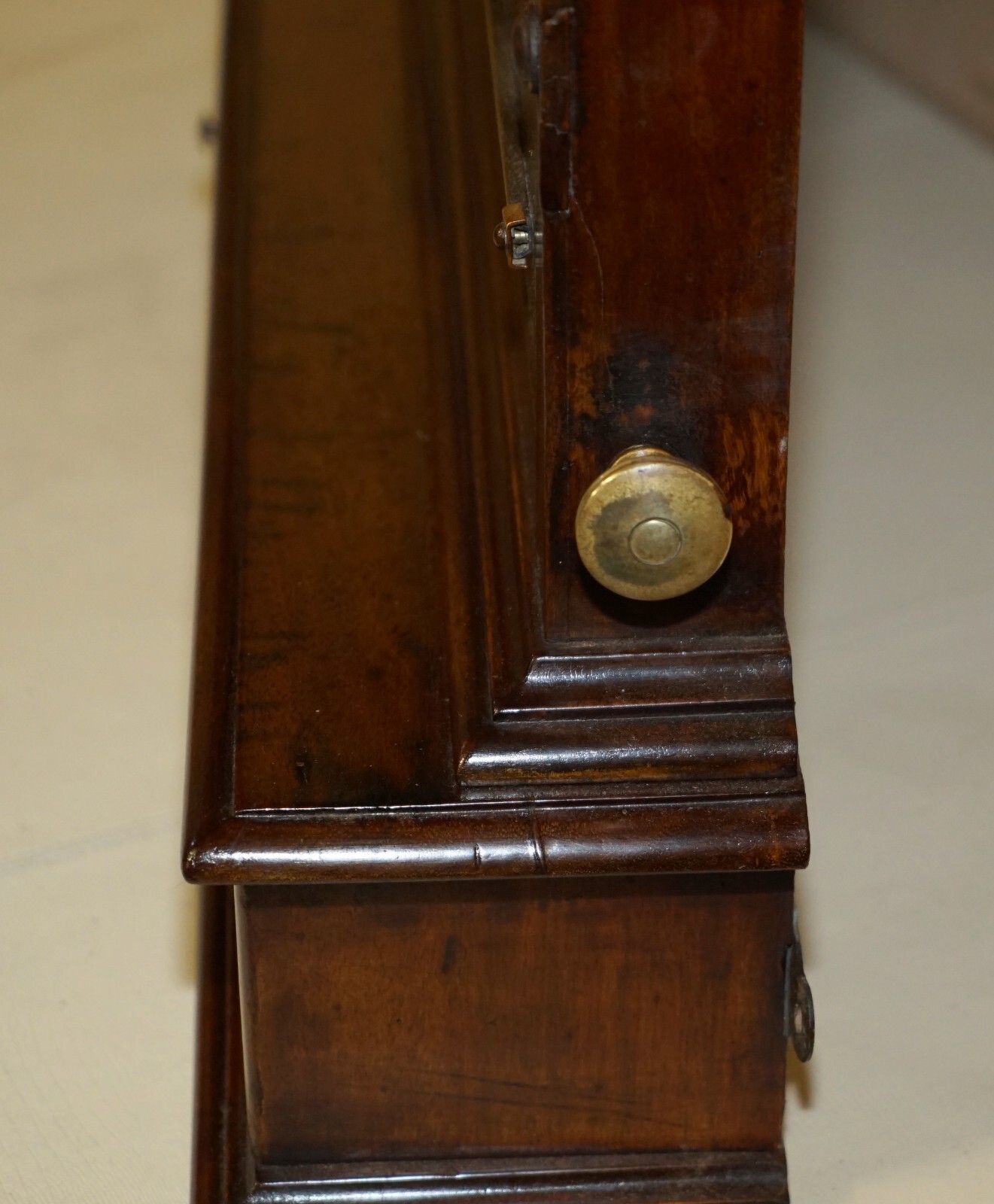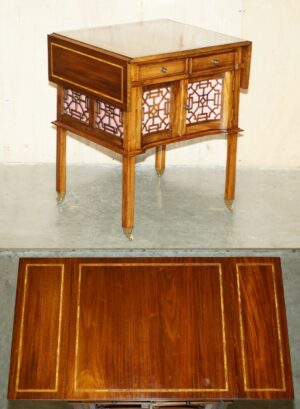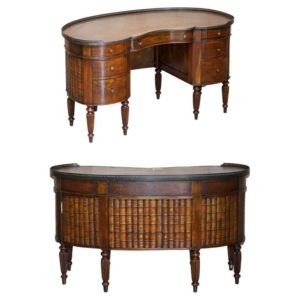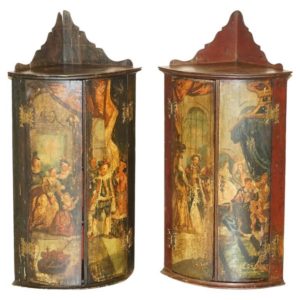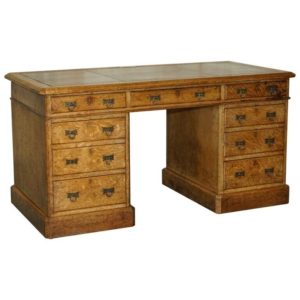Select Category
- All Tables
- Bedroom
- Bookcase
- Campaign Furniture
- Chesterfield Seating
- Cupboards
- Decorative Pieces
- Designer Brand Furniture
- Desks
- Dining Room
- Dining Tables
- Drawers
- Everything Else!
- Fine Furniture
- Fully Restored
- Gillows of Lancaster & London
- Howard & Son’s
- Jewellery & Watches
- Lighting
- Mirrors & Pictures
- Other
- Precious Metals
- Seating
- Sideboards
- Statues Sculptures & Art
STUNNING ANTIQUE FULLY RESTORED THOS PADMORE & SONS EST 1830 SNOOKER SCOREBOARD
£2,850.00
1 in stock
Payment options accepted

Description
Royal House Antiques
Royal House Antiques is delighted to offer for sale this absolutely exquisite fully restored Thos Padmore & Sons English Mahogany & Oak Snooker scoreboard Est 1830
A truly stunning example of Victorian Snooker equipment, this piece really elevates your game playing to something of a sophisticated 19th century gentleman who entertains his guests in his drawing room
This piece is very rare, if you search the name you will be hard pressed to find one example for sale anywhere in the world from this maker, it is fully stamped to the top Thos Padmore & Sons. Contractors to H.M Government 118 Edmund Street Birmingham
The condition is sublime, my French polisher has fully restored it to include washing it back and French polishing it from the ground up, the mother of pearl counters are all present and correct as are the box wood sliders, most of the original hand painted sign writing is still visible however it has faded over the last century or so
Dimensions
Height:- 78cm
Width:- 106.5cm
Depth:- 16.5cm
Please note all measurements are taken at the widest point, if you would like any additional or specific measurements please ask
Thomas Padmore and Sons
Information taken from Grace’s British Industrial History.
Of 112, 114, 116, and 118 Edmund Street, Billiard Works, Birmingham. Telephone: Central 1941. Cables: “Billiards, Birmingham”
Established 1830
1830 Thomas Padmore moved from London to Birmingham. The company had a base in Little Charles Street and Thomas founded a business of wood and ivory turning and cabinet making which grew rapidly. As the game of billiards increased in popularity he decided to turn his hand to the manufacture of the tables.
Late 1830s/1840s. Thomas was joined by two of his sons, and together they built up a prosperous concern, but shortly afterwards Thomas died.
1871 The business continued to expand and Edwin and John Padmore chose to build larger premises at 118 Edmund Street Birmingham. For the next 69 years this was one of the best known addresses in the world of billiards.
In time a third generation of the family joined the business and cousins Frank and Douglas Padmore gradually took control of the business. During this period the production of tables and associated products was rapidly increased to meet demand. This was undoubtedly helped by the 1855 agreement stipulating rules and standards to which equipment should conform.
WWI. The first World War curbed the normal activity of billiard table making. Edgar Padmore, the senior partner’s son, and a number of craftsmen, joined the forces, and the factory was turned over almost entirely to war work.
Post-WWI. After the war ended, billiards equipment manufacturing took over from the cabinet making and Ivory turning. In those days most of the billiard balls were still hand turned from Ivory, and a huge range of products were made from the waste tusks.
1929 British Industries Fair Advert for Billiard Tables and Every Accessory. Manufacturers of Billiard Tables of all sizes. Built of naturally seasoned superior solid Mahogany for Export, with Premier Championship Cushions, as fitted for the World’s Championship Matches, also all Accessories, including Brassware. (Sports Goods – Stand No. B.26)
The production of tables continued and by this time the tables were being exported to all parts of the world. The national championships of Norway were staged on Padmore tables as was the World championship of 1933.
WWII. During the Second World War a fourth generation of Padmores had taken control of the business. During the blitz, the Edmund Street Offices, factory, warehouse and showrooms were all destroyed. Additionally all historic company records were also destroyed.
Edgar Padmore had to find temporary accommodation in the centre of Birmingham and also obtained outbuildings in a country house for use as a factory. The company had managed to obtain considerable work on behalf of the military and civil services. They also developed a rental system enabling them to get good returns on hired tables. Once the war ended these tables formed the basis of a good post war stock.
Post-WWII. Further new premises were acquired at 3 Coleshill street and a large up-to-date factory was also built. The manufacture of accessories, and table restoration, formed the bulk of the work, whilst timber stocks that had been built up began to season in order that they could be used for the manufacture of tables.
1951 The firm became a Limited Company, with a subsidiary to deal with the hire of billiard tables and to control the three billiard halls, two of which had been in existence for 40 years. The Board of Directors contained Neville Padmore who had built up his experience in various different internal departments.
During the late 1950s, the Coleshill Street premises were compulsorily purchased and the billiard halls disposed of due to changing economic and social circumstances. The companies consolidated at new premises, 8-12 Cheshire Street, only to learn some 12 months later that these Freehold premises were also to be taken by compulsory purchase. This purchase was to make way for the building of The Aston Express Way to the M6.
1966 Terence Padmore retired and the companies joined with E. A. Clare and Son, of Liverpool, and Thurston and Co of London. The managing director of the new group was Neville Padmore 1969 The forced move from the Cheshire Street premises allowed them to relocate to 180 Lozells Road. These premises included showrooms, offices and warehousing for the handling of a variety of products.
The expanded group’s tables were used in many championships and regularly on TV over many years. 1987 The brand name of Padmore ceased when the combined group of companies decided to move forward with the single brand of Thurston
Any questions please feel free to ask before you bid
ABOUT US
Royal House Antiques is a privately owned family ran business founded in Wimbledon SW19 and now based in Pulborough RH20. We specialise in finding, restoring very fine luxury antique leather seating, along with every single other type of antique ranging from the 16th century to the 20th century. We also stock a number of designer brands such as Fritz Hansen, Ralph Lauren, Cavalli, Charles & Ray Eames, Vitra, David Linley, Rolex, Tiffany, Jager Le Coulter and so on
PAYMENTS
We accept payment via Bitcoin, Bitcoin cash, Ethereum, Bacs, Chaps, PayPal or Card, we would kindly ask that all items are paid for within 48 hours and collected within 7 working days, we can hold all paid items for 14 days free of charge, there after a £20 a week storage fee will apply. We have long term storage which is very economically priced, we are happy to hold stock for as long as needed providing it is arranged prior to the purchase
If sold items aren’t collected within three months and no arrangements have been made for long term storage you will forfeit the item and payment
CONDITION
Please view the very detailed pictures as they form part of the description pertaining to the condition. Please also ask any questions before you bid and not after, all of our items are sold as seen and as listed
Royal House Antiques cannot be held liable for any independent assumptions made regarding the items we sell, if you are unsure on any point, please feel free to ask for clarity
Please note vintage period and original items such as leather seating will always have natural patina in the form of creasing and wear, we recommend annual waxing to ensure no moisture is lost, also hand dyed leather is not recommended to sit in direct sunlight for prolonged periods of time as it will dry out and fade
IMPORT DUTY
Most countries charge some kind of import duty however almost all of our items won’t incur any charges as the items are exempt from tax due to the age and materials used
For European deliveries the price you will be quoted will include all clearance documentation and any customs charges so there won’t be any additional fees
For international deliveries such as the United States there can be some import duty to pay and or a clearance fee, I would estimate that 99% of all deliveries clear customs without being stopped for either
All duties are the responsibility of the purchaser who is the importer, they can’t be covered by the seller or shipping agent or factored in with additional retrospective discounts
RETURNS
Royal House Antiques offers a no quibble return policy if the item is not as described, if there are any issues with the piece you will be refunded in full once the item has been returned and inspected within 14 days, alternatively if there is a small issue, we can discuss finding a mutual resolution that makes all parties happy
We don’t offer a sale on approval service which means you can purchase the item, have it delivered and if you simply don’t like it, return it, this comes under change of mind or doesn’t fit. There is a lot of time, money and work involved in transporting goods around the world, the costs incurred can be vast so my advice would be if you are unsure on a piece please ask as many questions as you like to make sure you understand everything before you buy, if you are still unsure then please either arrange a viewing in person or if that’s not possible then don’t buy from an online retailer, perhaps look for a local gallery instead
Additional information
| Brand | |
|---|---|
| Options | |
| Type | |
| Country/Region of Manufacture |
Related products
About Us
Royal House Antiques is a privately-owned family ran company founded in Wimbledon in 2012 by husband and wife James and Iris Thorpe

Usefull information
Contact Us
- Tel: 07850890032
- Email: james-thorpe-2010@hotmail.co.uk
Copyright 2024 Wimbelon-Furniture

